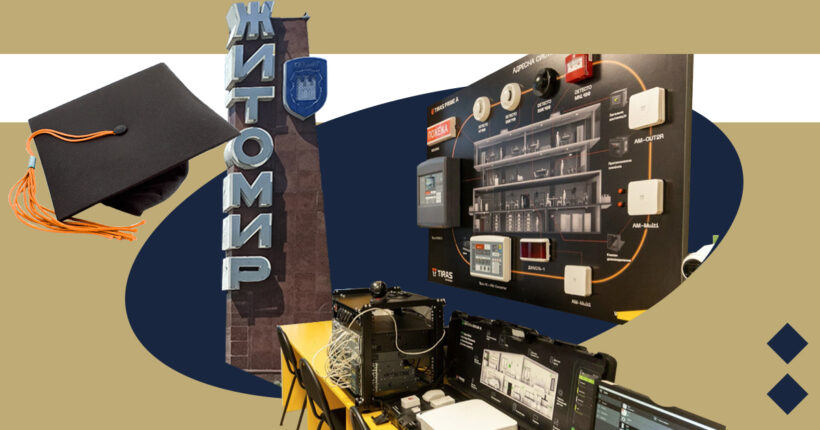
The clock strikes 13:00, which means that the courtyard of the Zhytomyr Polytechnic is filling up with the hum of students on their way to their courses. After almost four years of online education in Ukraine (which continues in many institutions), face-to-face education feels like a miracle.
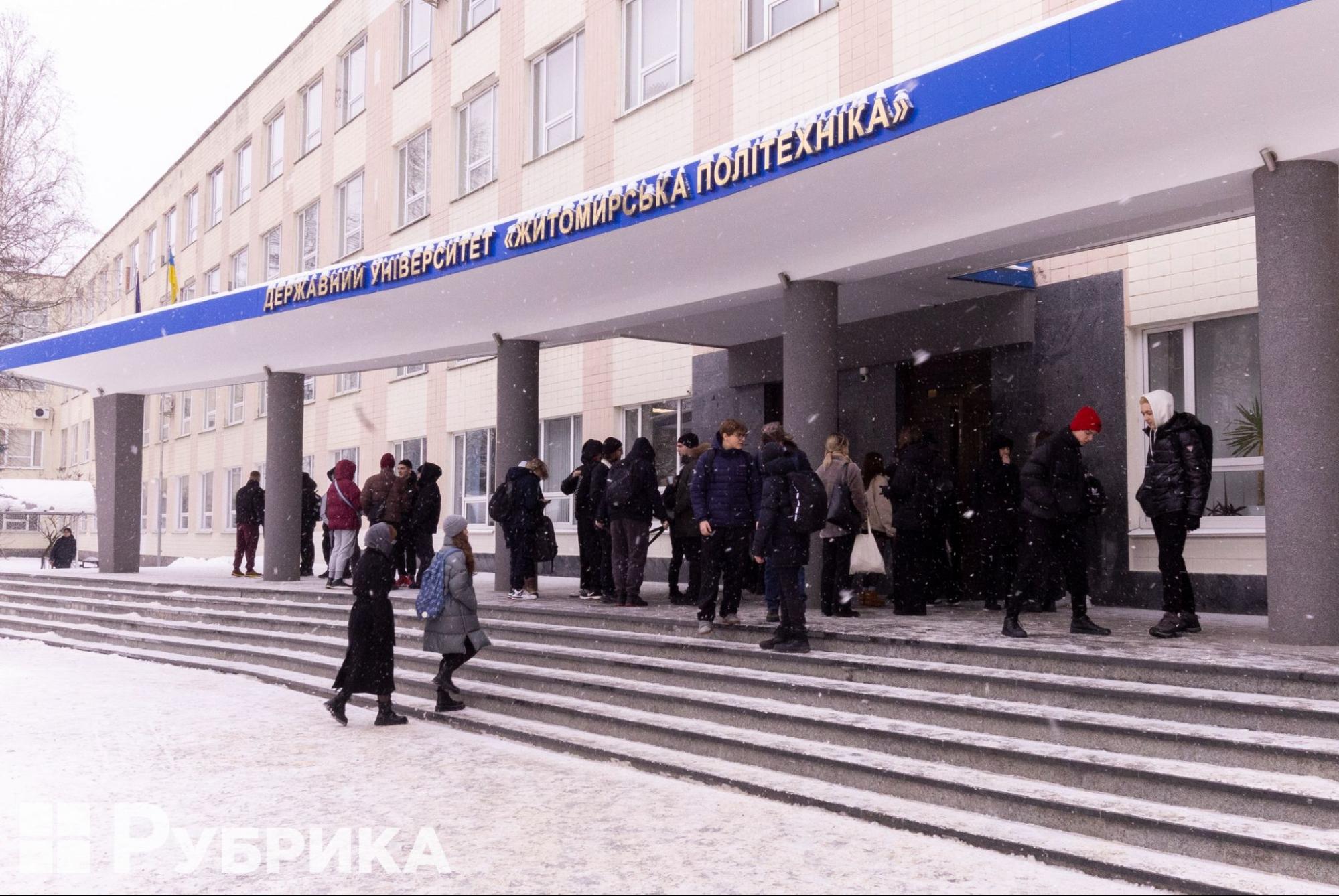
Polytechnic students between classes.
For polytechnic employees, maintaining offline education is a priority. Even during the beginning of the full-scale invasion, the university and the lyceum for high school students operating on the campus did not stop their studies — students continued classes while observing safety regulations.
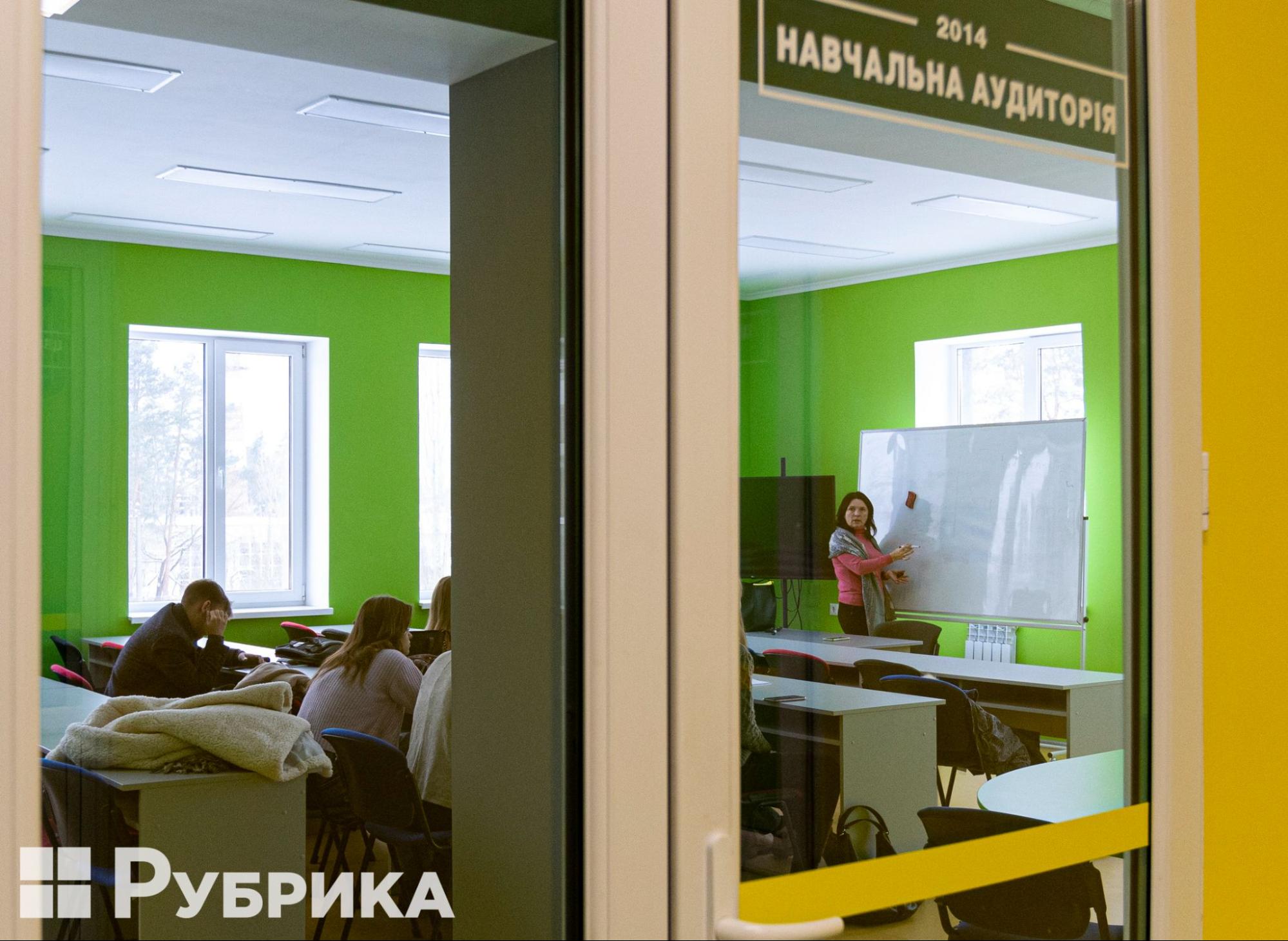
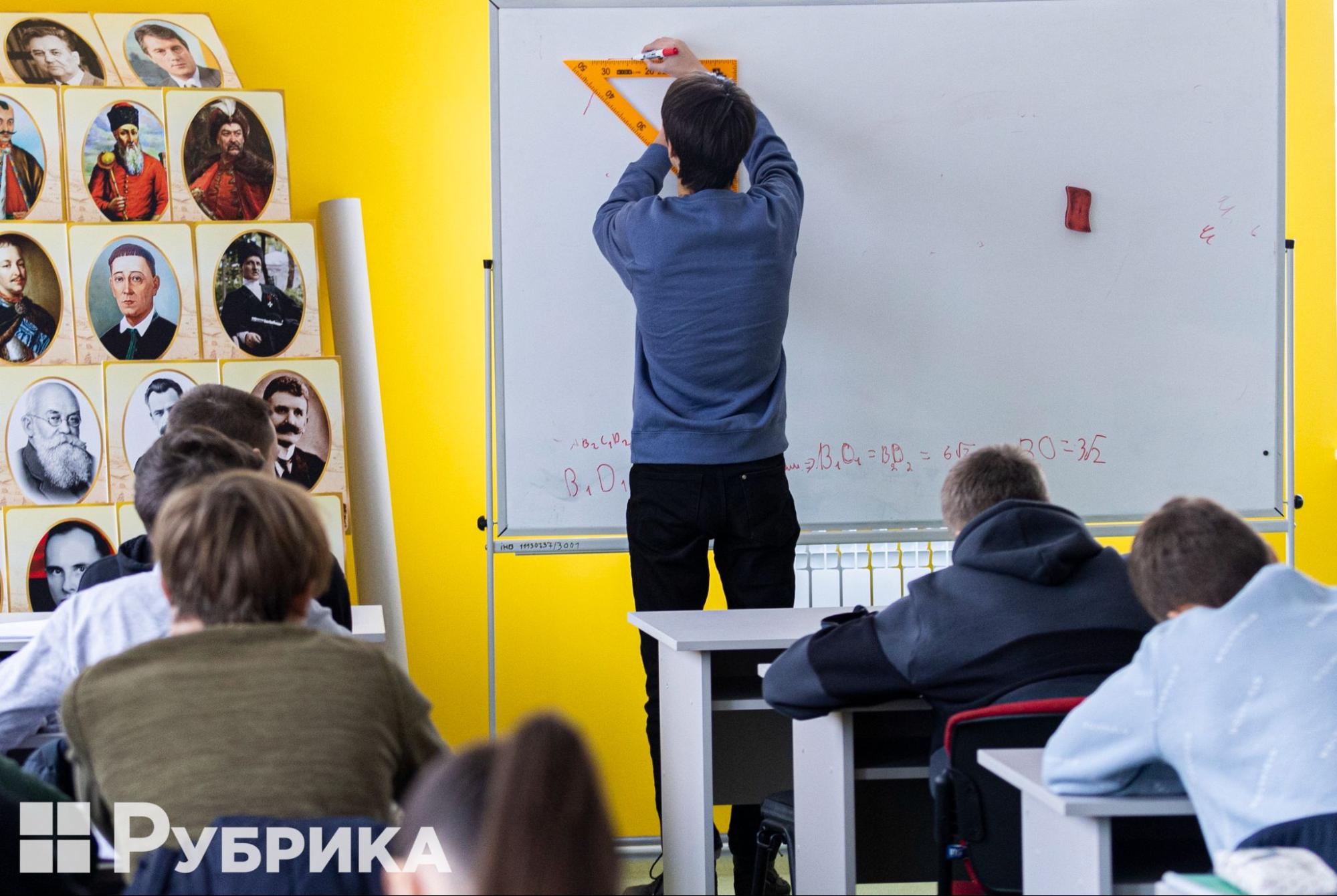
Lyceum students at lessons.
What is the problem?
This year's results of the international study of the quality of education Programme for International Student Assessment (PISA) showed that Ukrainian schoolchildren are significantly behind in their knowledge of mathematics, natural sciences, and reading literacy. Many factors influenced the results, and online learning is one of them. Returning to face-to-face classes is the first step to making up for lost time.
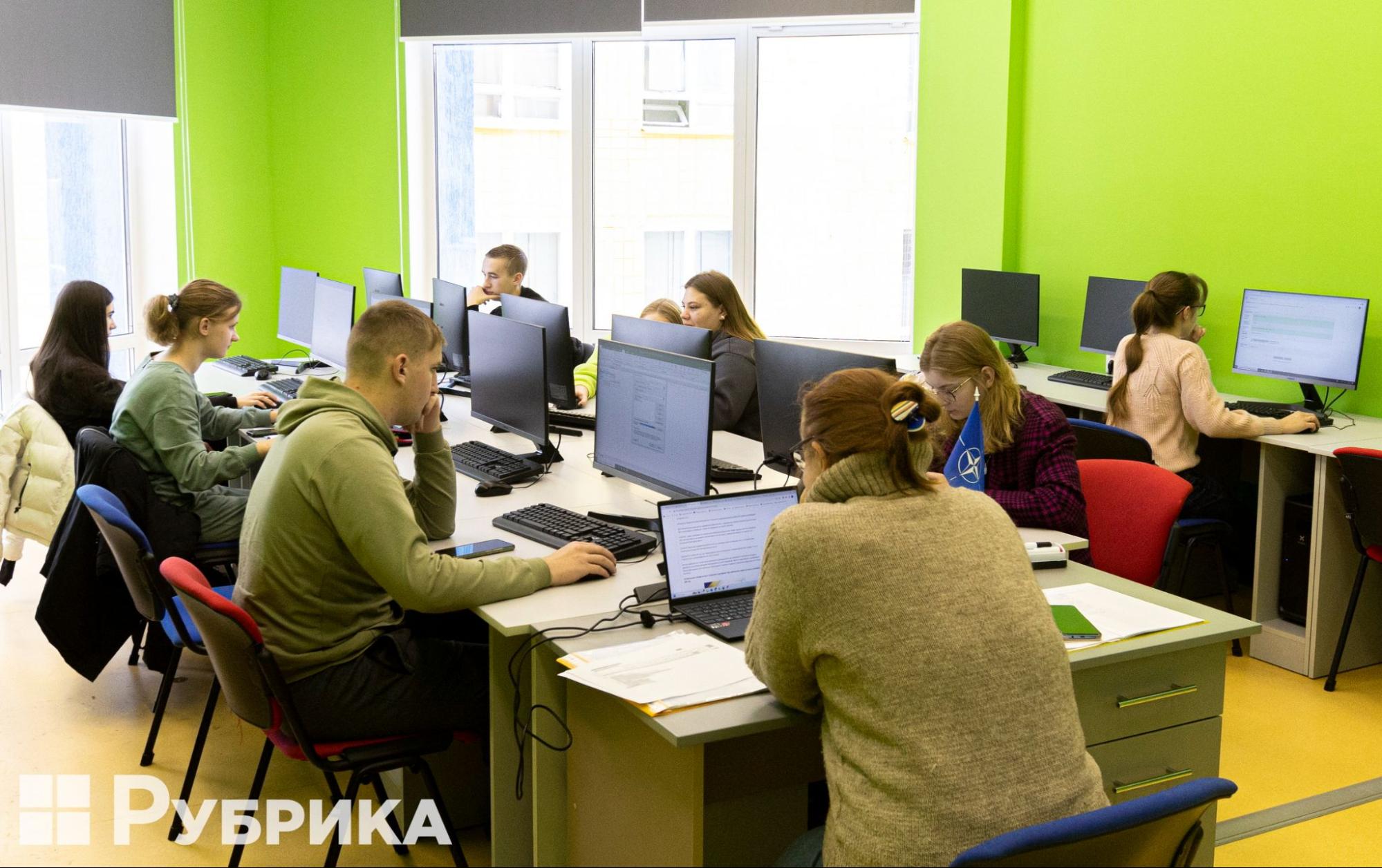
Students take superficial knowledge with them to universities or completely refuse professions where exact and natural sciences are the main focus. In 2023, U-report and Vox Ukraine conducted a study in which Ukrainian students were interviewed about the priority specialties for admission. The results showed young people are more inclined to choose humanities and computer fields, citing various reasons.
However, in practice, technical specialists, doctors, STEM specialists, architects, and other specialties related to the defense industry have the most significant demand in Ukraine. Previously, Rubrika wrote about how leading countries struggled and continue to struggle with the problem of a lack of students in technical specialties. The problem is multi-faceted and requires changes at every stage, from kindergarten to higher education.
What is the solution?
Creating conditions for the development of science, creating university-based startups, and supporting students' ideas are the strategies Zhytomyr Polytechnic chose, aiming to form a new generation of quality specialists and do everything possible to keep up with global technical progress. Rubryka shares how they implement this mission and what projects they implement together with students.
How does it work?
At the Zhytomyr Polytechnic, almost every office is named after students. Here we go past the door labeled Head of Pokemons, which houses the faculty of information and computer technologies – specifically game designers. Here, they learn how to write code for games and have even created a mobile game with the State Emergency Service, which teaches safety rules to children.
Everyfloor houses laboratories and classrooms equipped with computers, TV sets, measuring equipment, generators, soldering stations, and many other devices necessary for education. Students often come here early to consult with teachers, work with the devices, or present their ideas.
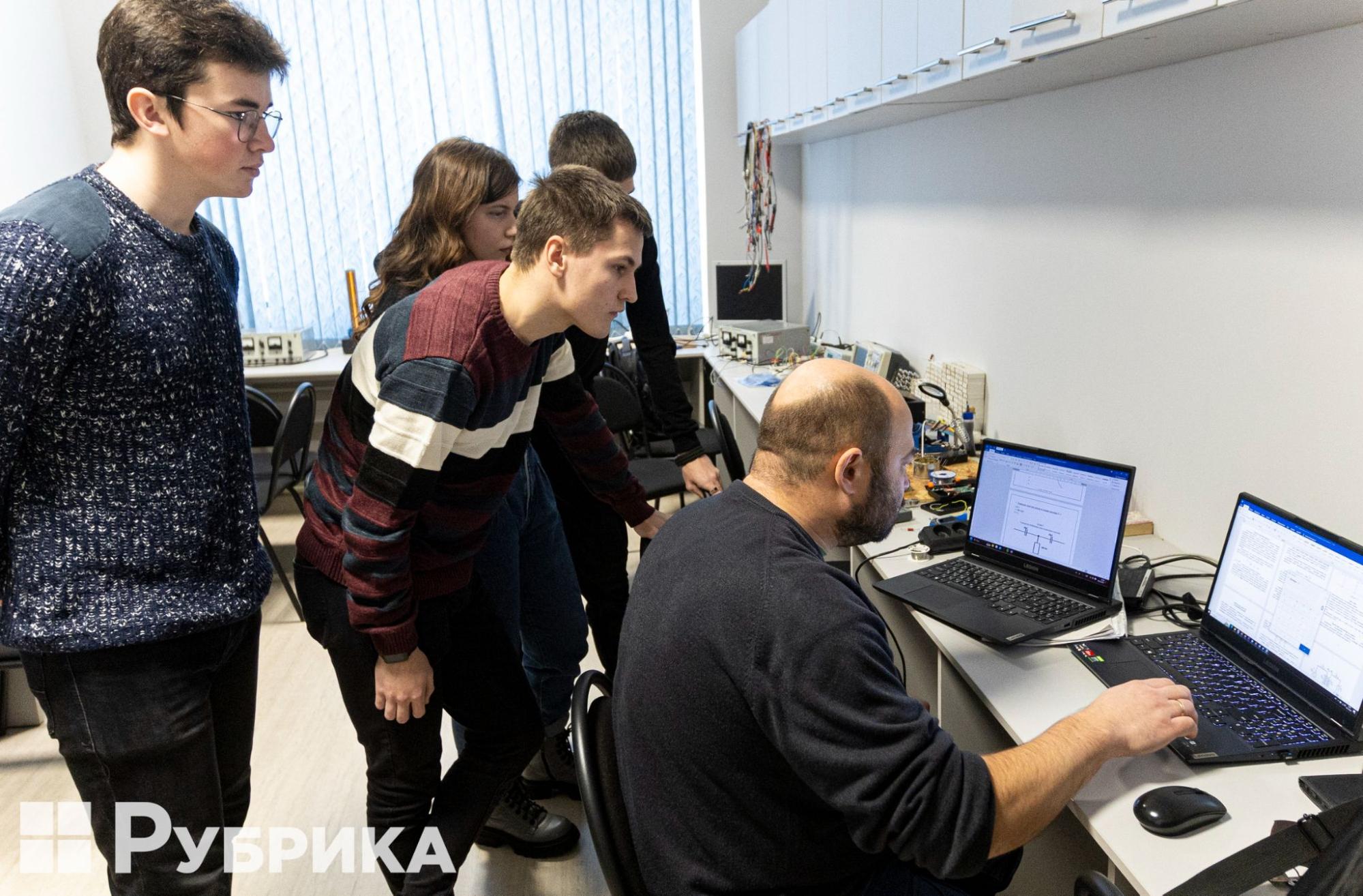
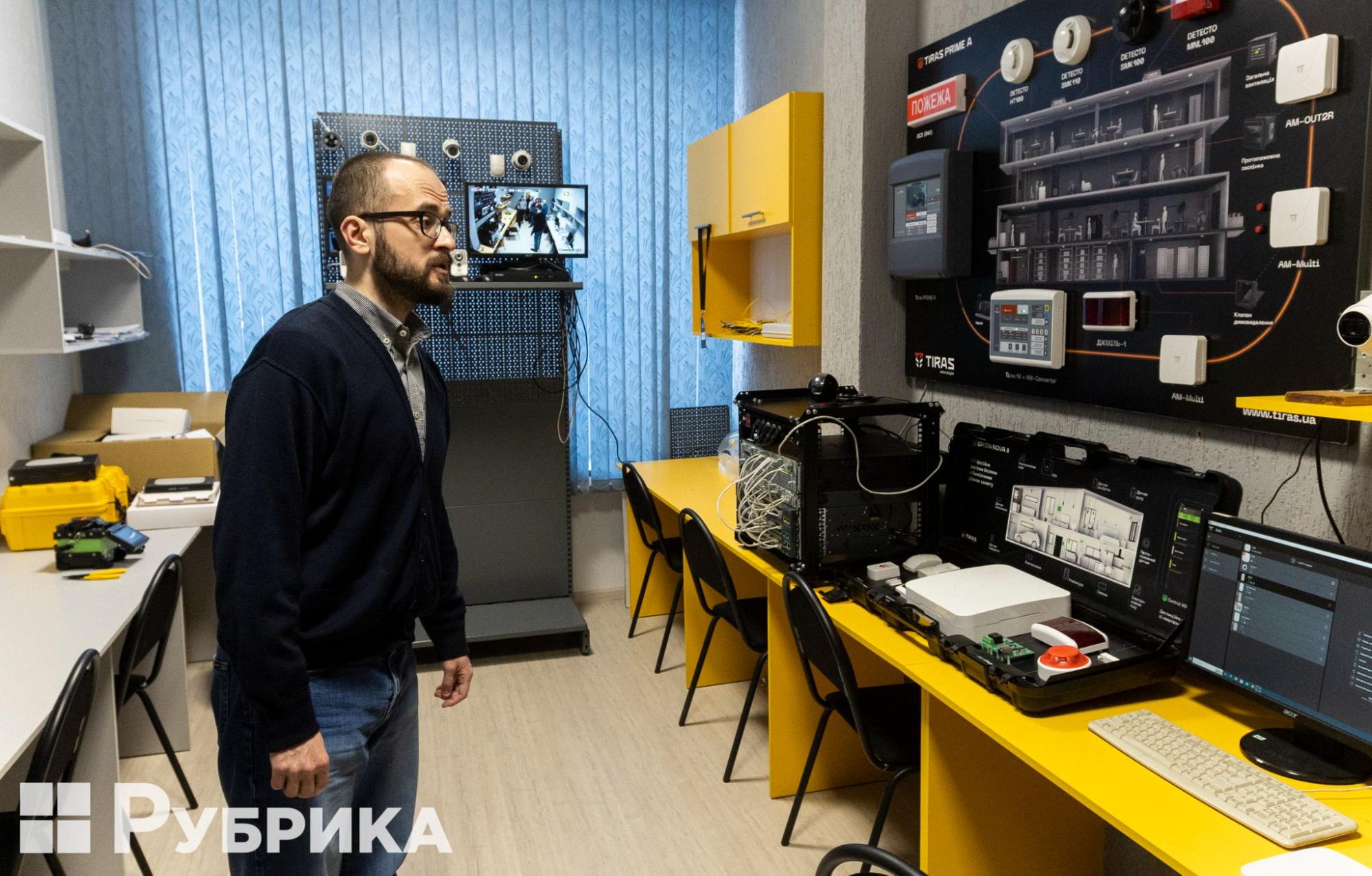
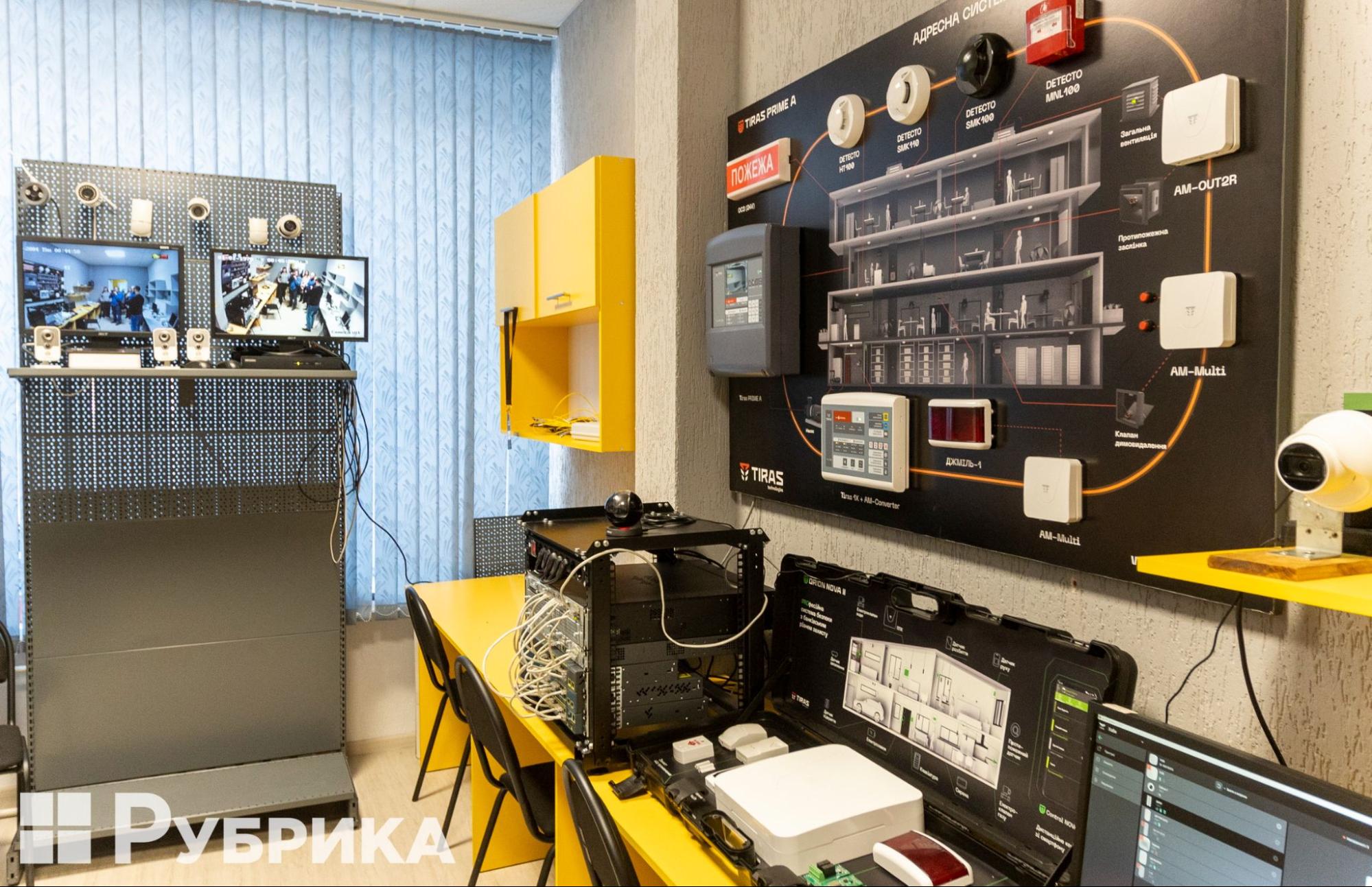
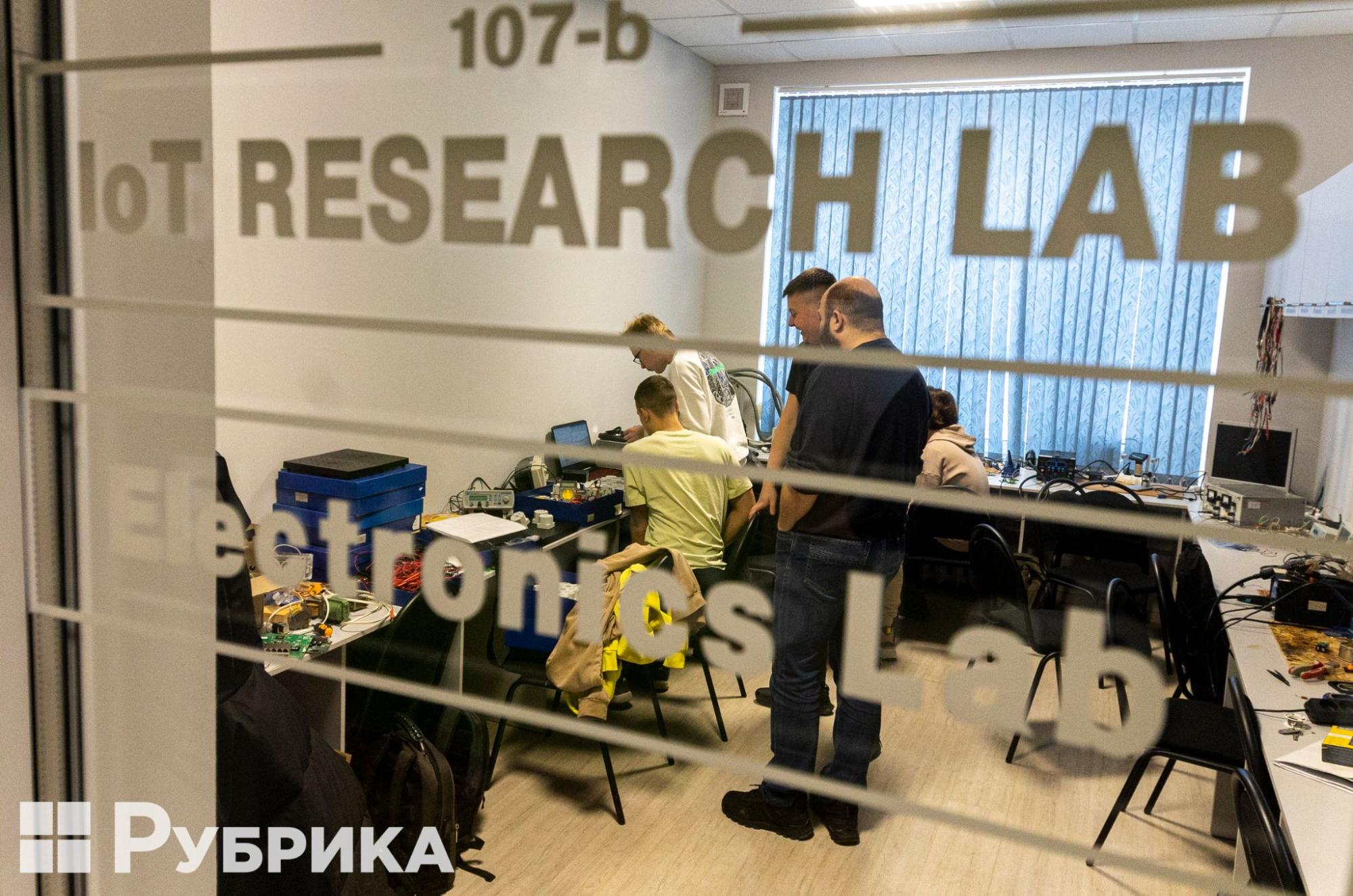
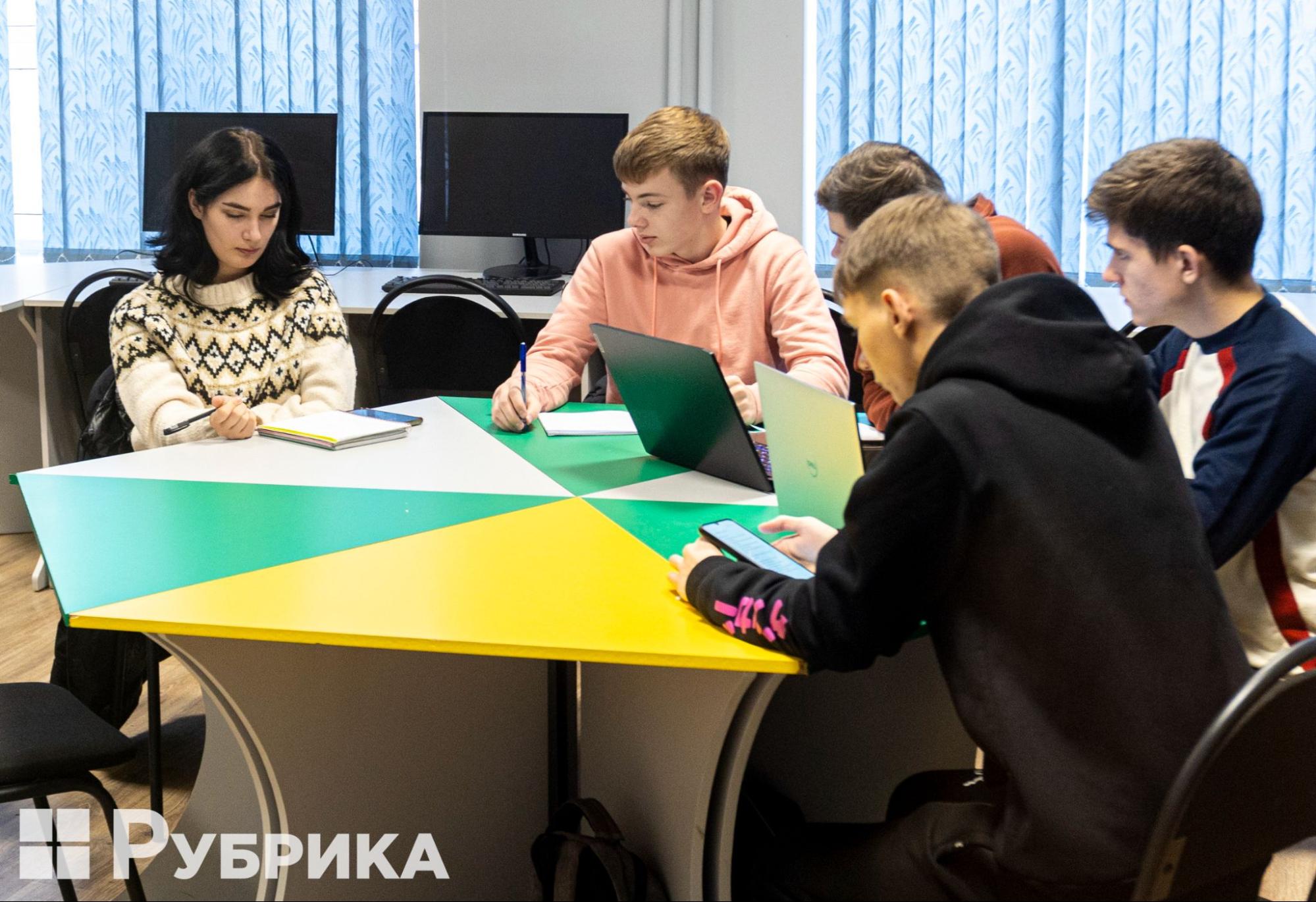
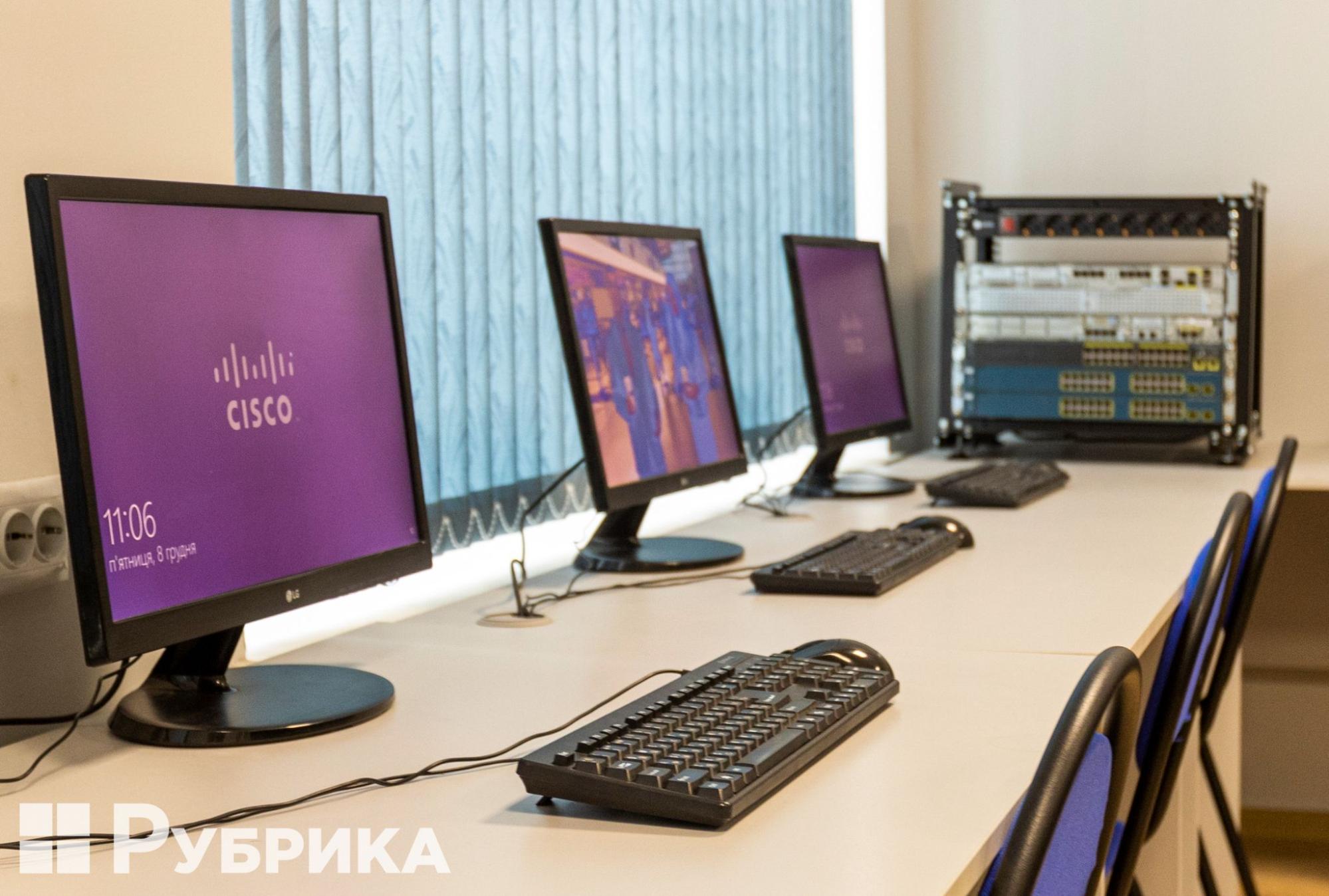
Study rooms and laboratories.
University-based startup
The colors of the Innovation Hub – in contrast to the bright colors of the university, red, blue, yellow, and green – have a calming effect, and unconventional lighting make it clear that this place is a center of innovation.
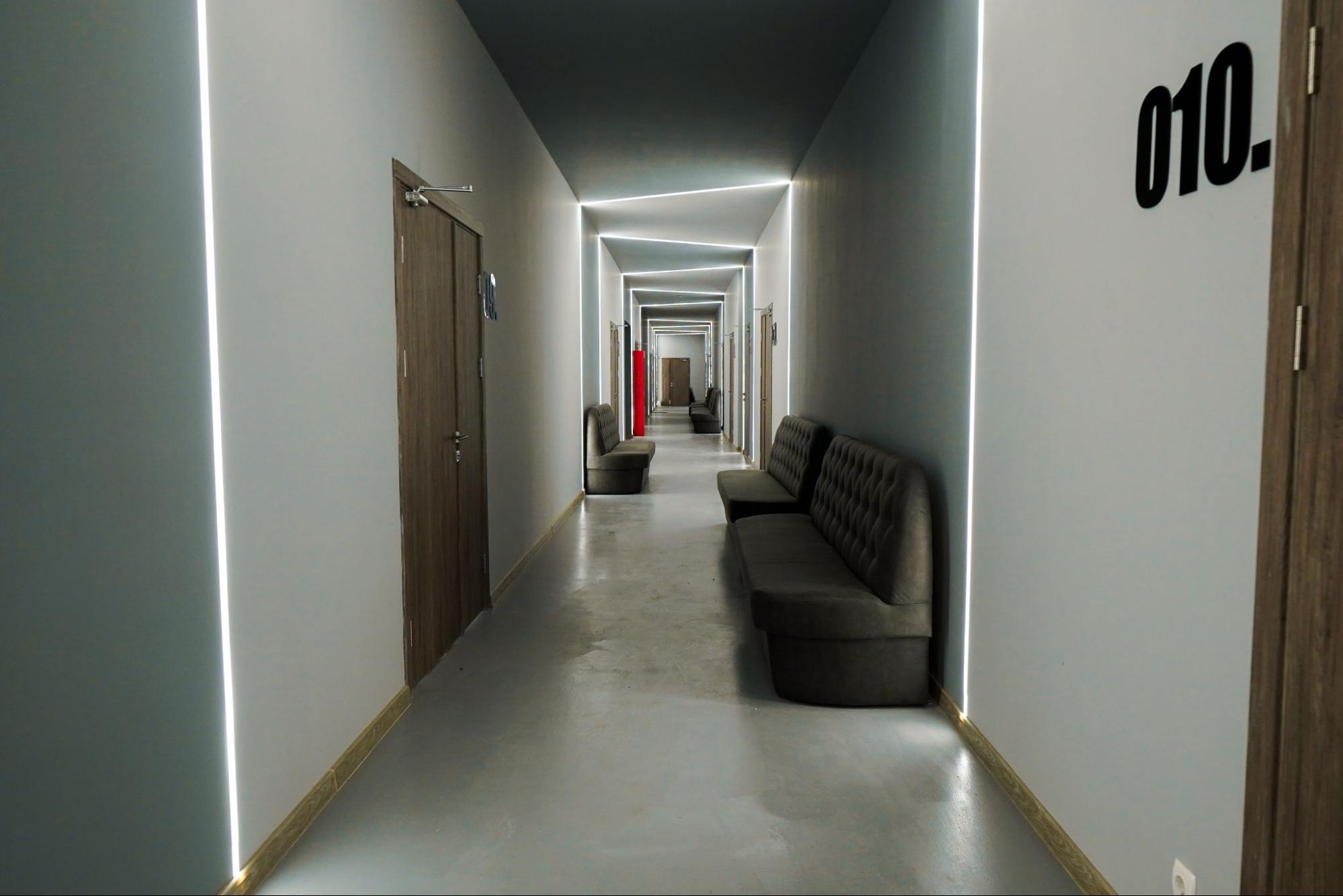
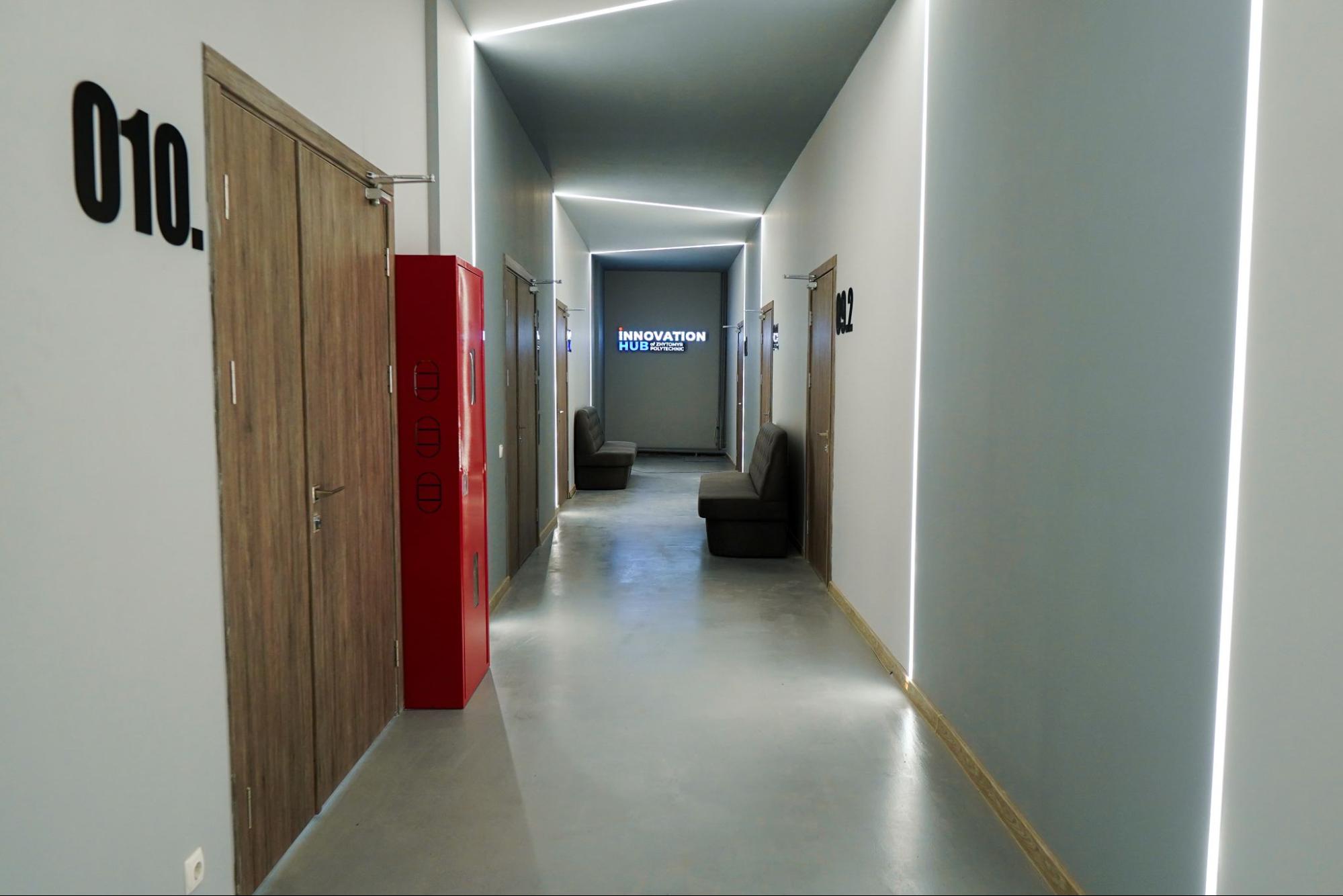
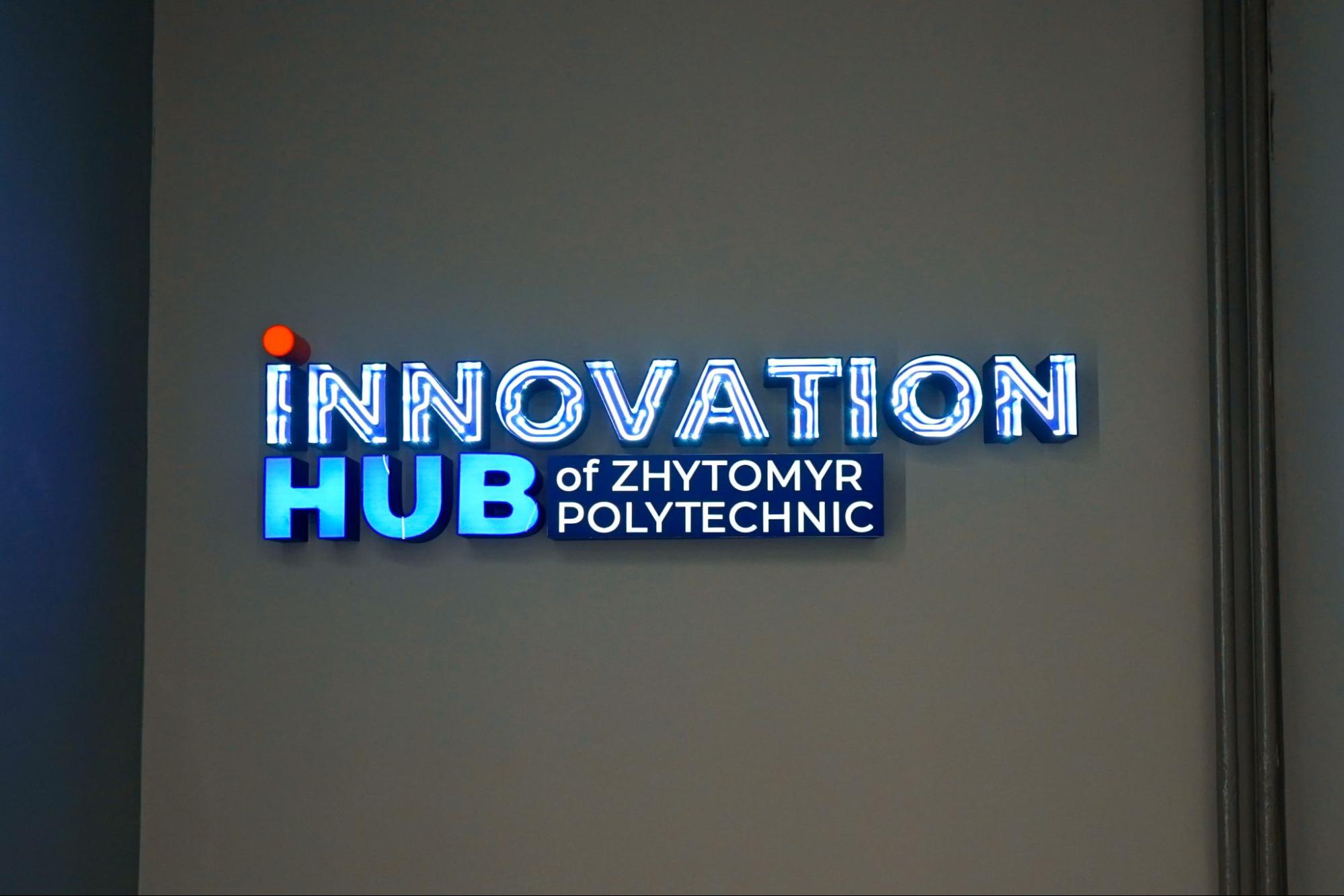
3D printers are located inside the laboratory room — one of them is printing a plastic dinosaur based on a previously prepared layout as our journalists peek inside.
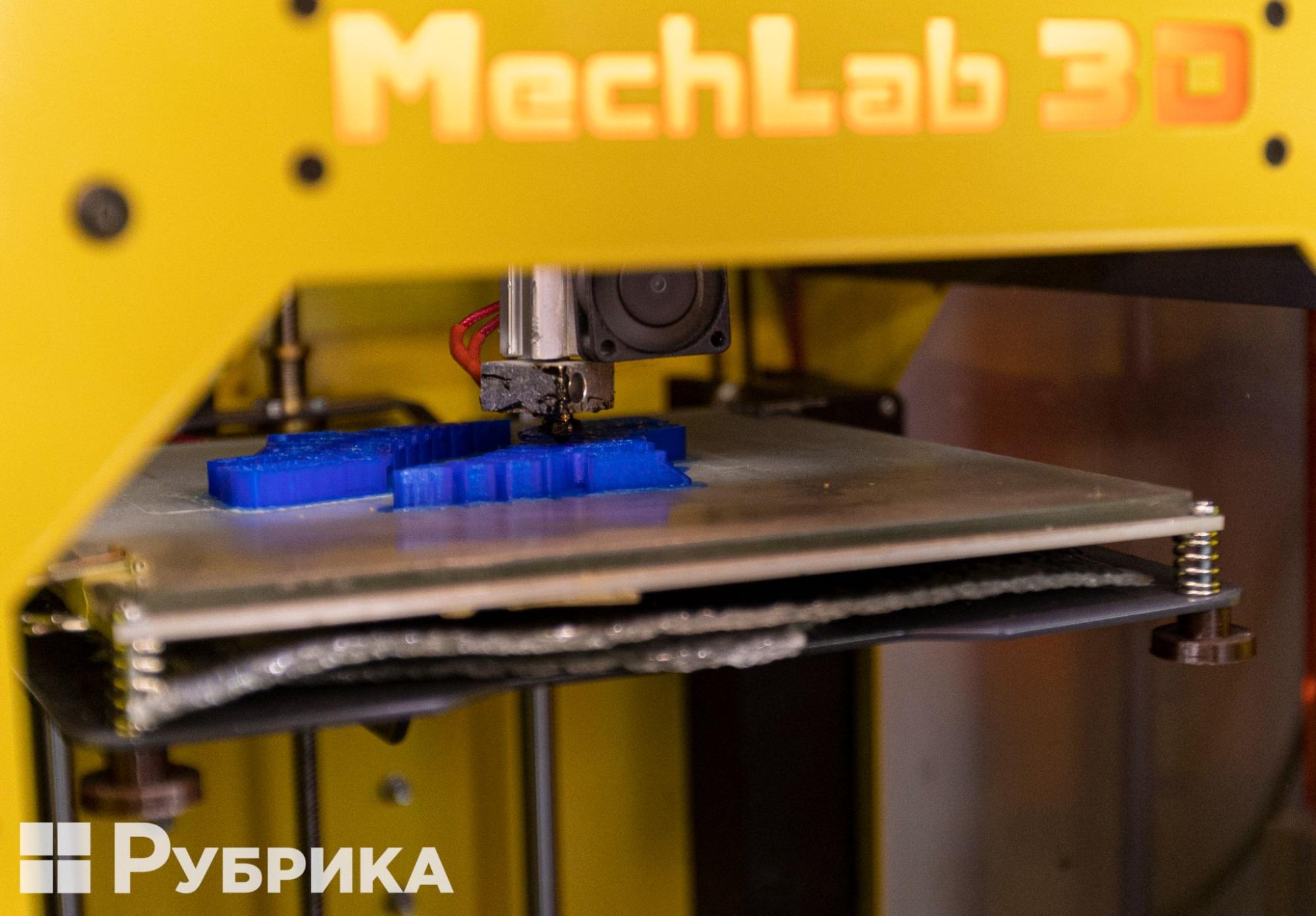
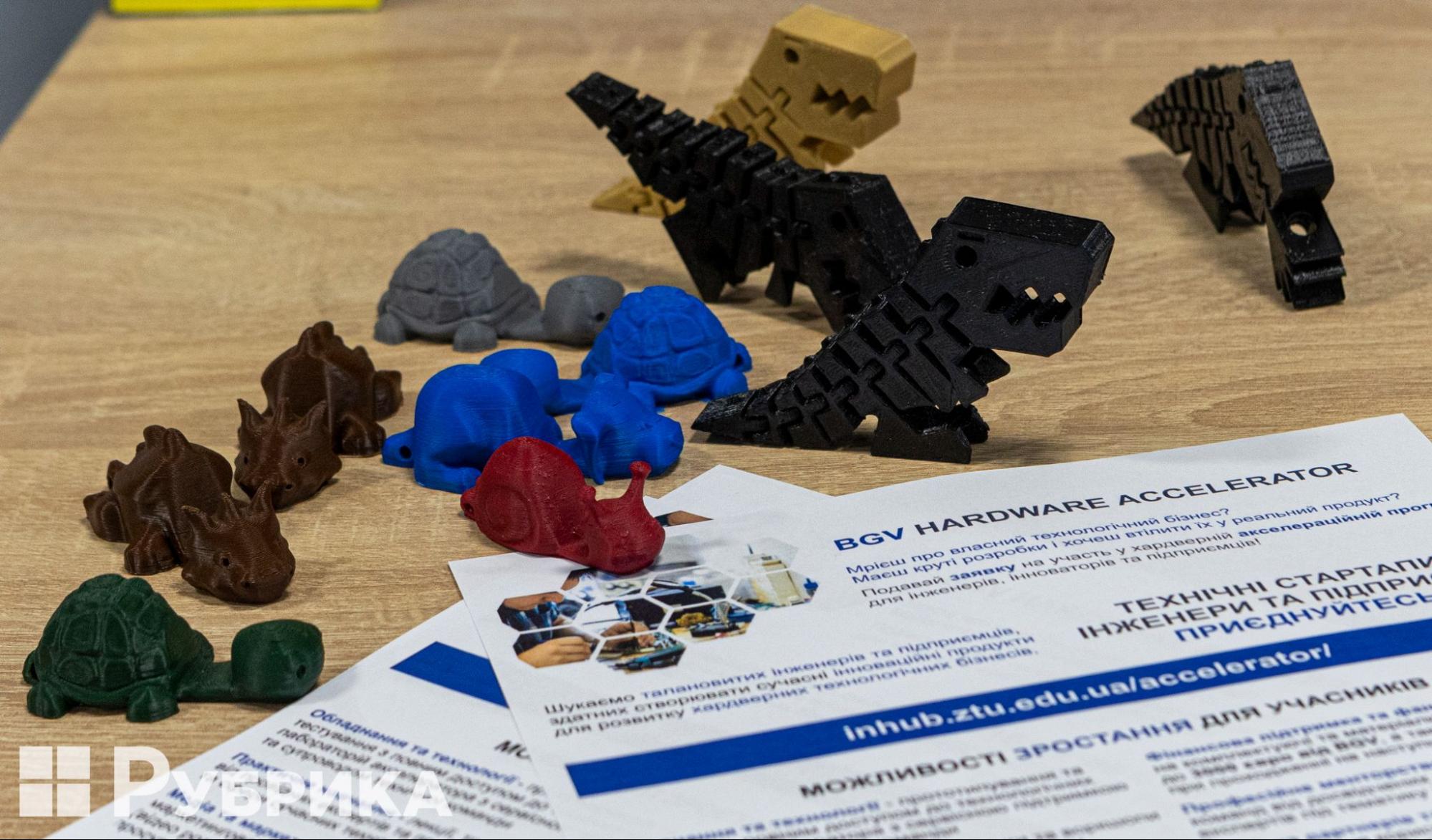
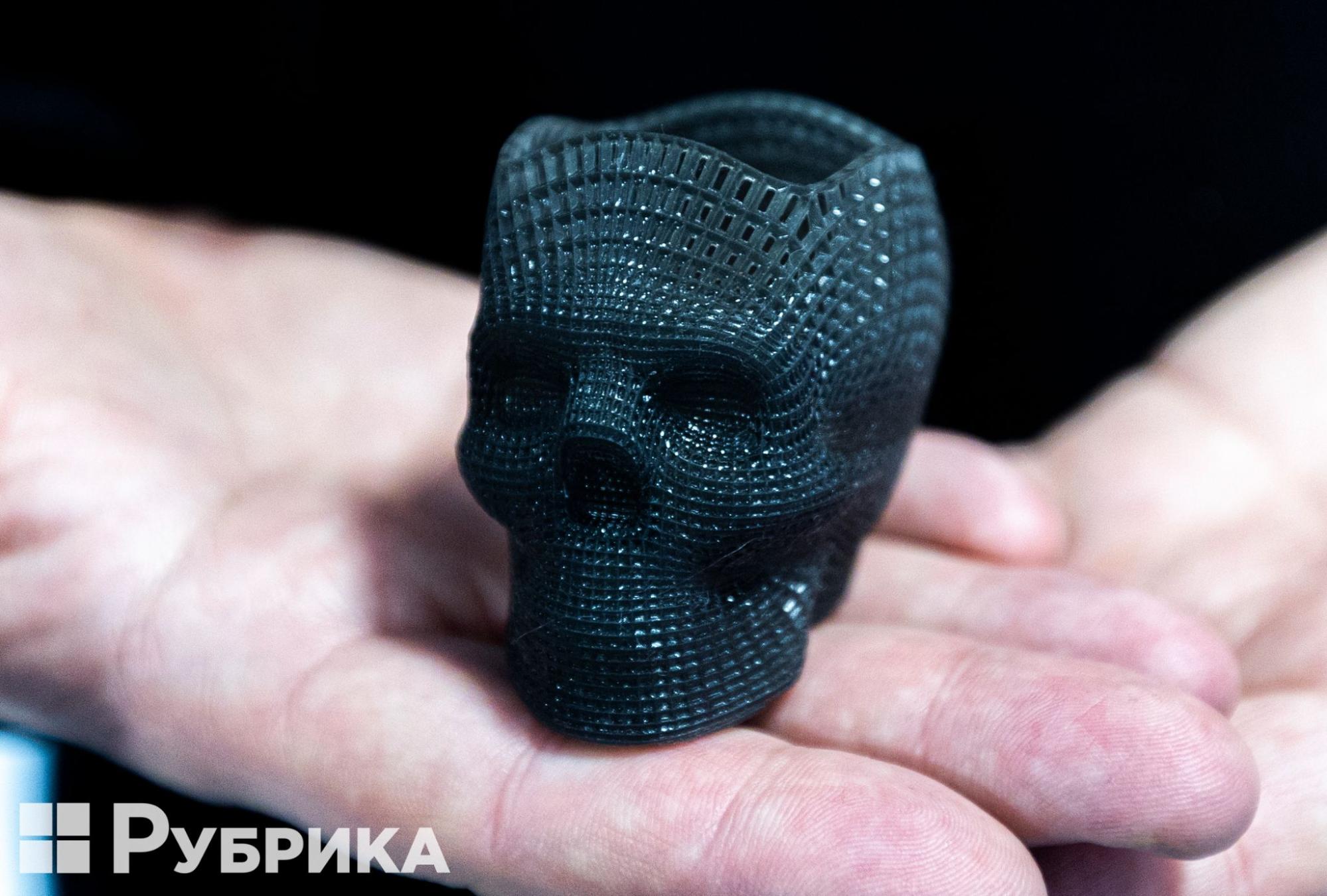
Product layouts.
Such activity is nothing new for the university. Here, students print based on sketches, create their own and improve existing models of printers, and even implement the idea so that it is not just an interesting experiment but beneficial to the institution's budget.
Mykhailo Psyuk, the head of the hub, says that printing and producing modern 3D printers is one of the postgraduate scientific projects, and shares that this is actually a very successful project — the winner of various competitions, in fact: "We are now launching into commercial production. The first serial models of printers are already on the market. I think they will find their customers in Ukraine and abroad. It is important for us that this business is international."
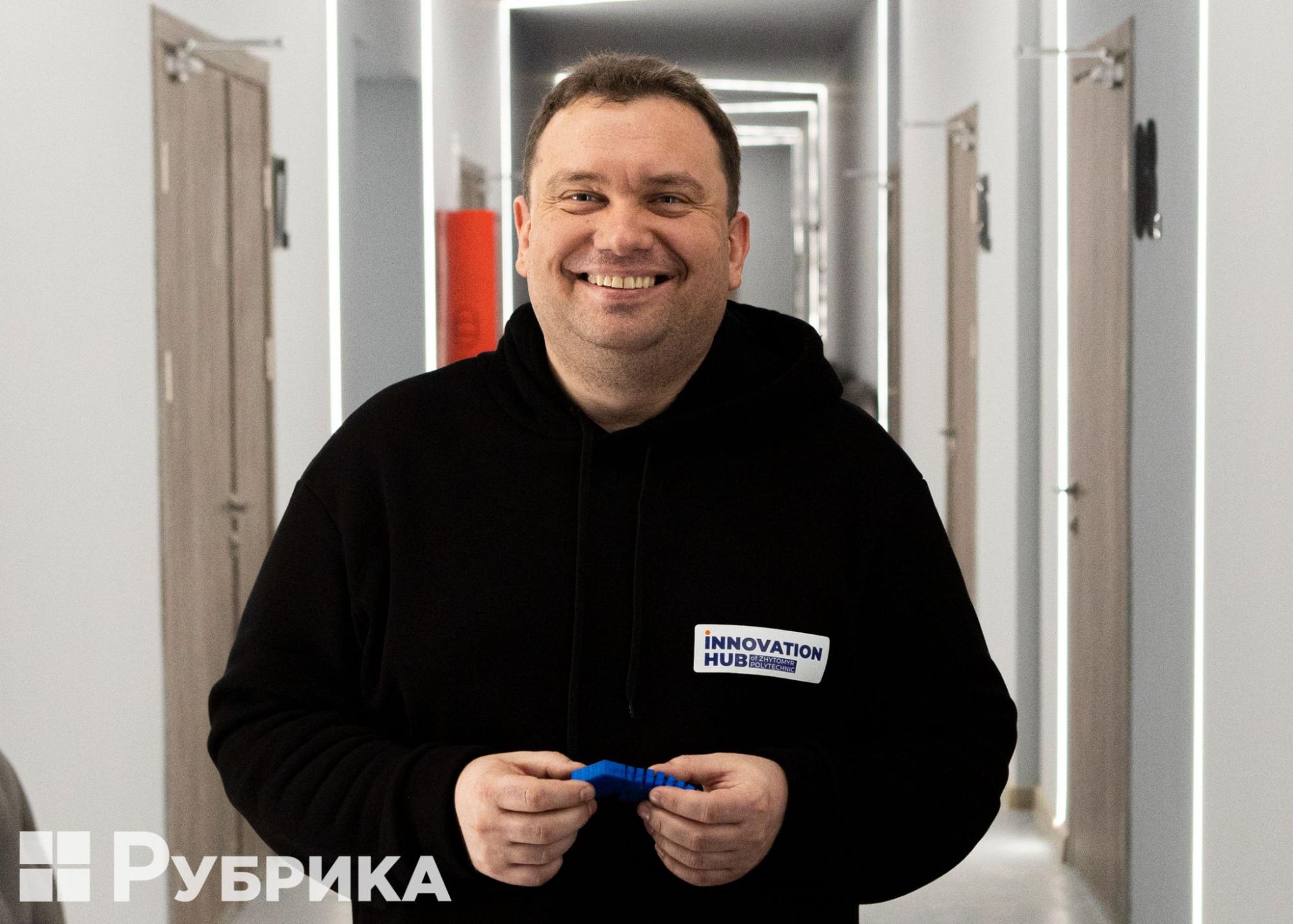
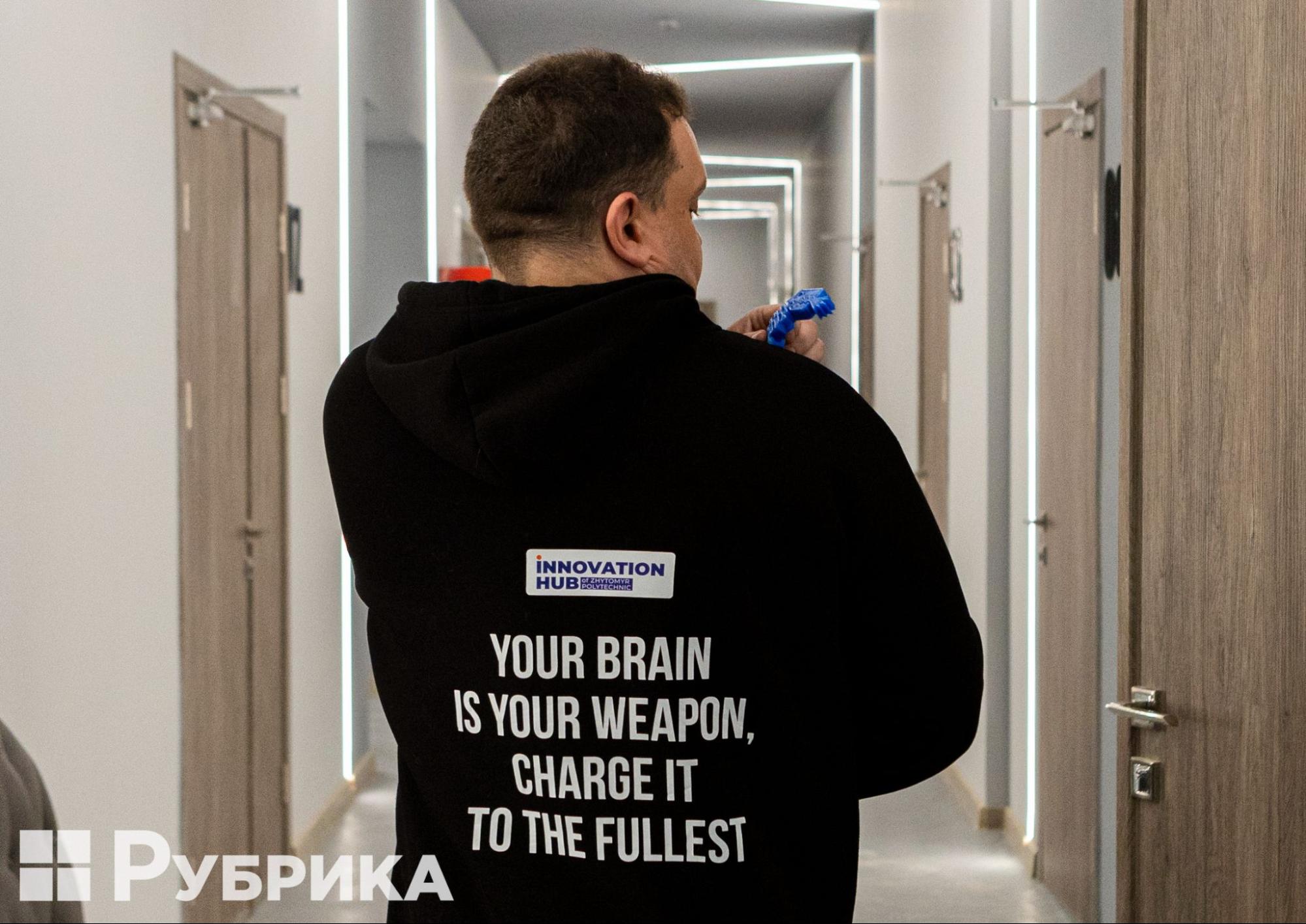
Psyuk holds a model made on a printer created by post-graduate students of the polytechnic.
Students work as full-time employees of the hub. One of them, Anton Horlakivskyi, is a first-year master's student. The scientist says the teachers are interested in projects and are ready to help at any time: "Sometimes it happens that I am on the phone with the teachers until 10 p.m. if I have some interesting idea."
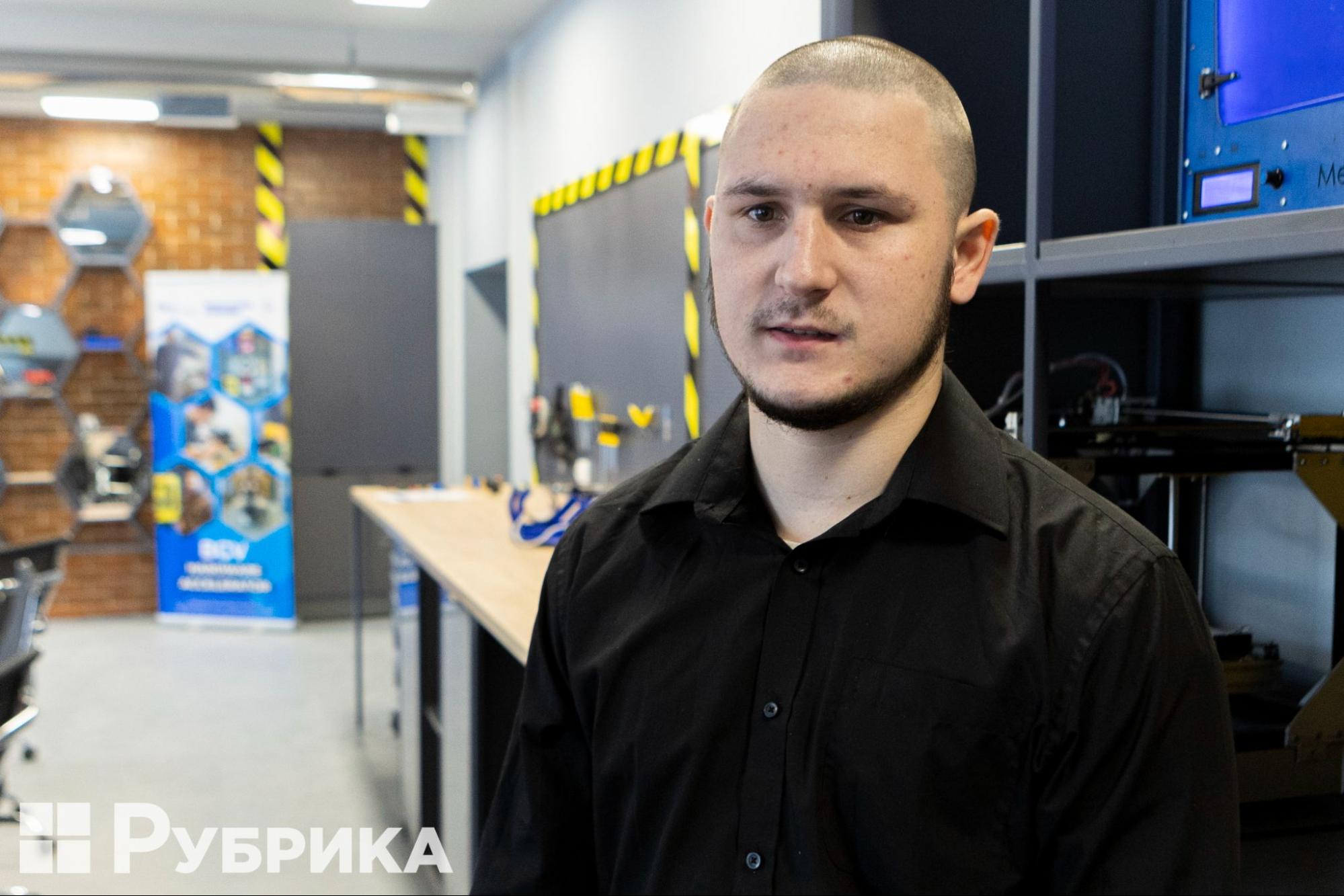
Anton Horlakivskyi is one of the hub's employees.
Horlakivskyi student is engaged in projects with programming aspects, particularly setting up the correct configuration in printers.
"My latest idea is a controller for a printer farm, that is, to be able to put all these printers and combine them into one system and remotely control one whole mechanism: stop printing, see if it is printing at all, or if it has stopped," Horlakivskyi shared with Rubryka.
According to their team's calculations, if the printer is fully loaded for a month, such an innovation will be able to significantly reduce shortages, because when a model has been printed, the printer does not physically know that it will not be printed any further. For example, if there is some failure, the printer does not know it is no longer printing. With the help of this controller, you can remotely notice in time that the printing is already halfway through and pause the process. "We calculated that in a month, if we print in this way with all printers, we can save approximately 10 kg of plastic filament plastic for 3D printing," Horlakivskyi explains.
"After our conversation, the student did not just have a mush of incomprehensible words in their head – but a formed idea which they will later refine"
The hub's main mission is supporting student projects and trying to implement them is the main mission of the hub. Yurii Koval, Horlakivskyi's laboratory colleague, shares that their work is now aimed at helping fresh minds. First, students introduce themselves and make a small pitch of their idea. The next stage is a brainstorming of the whole team about the possibilities of improving the idea, as Koval himself says, "so that after our conversation, the student has not just a mush of incomprehensible words in their head – but a formed idea, which they will then refine."
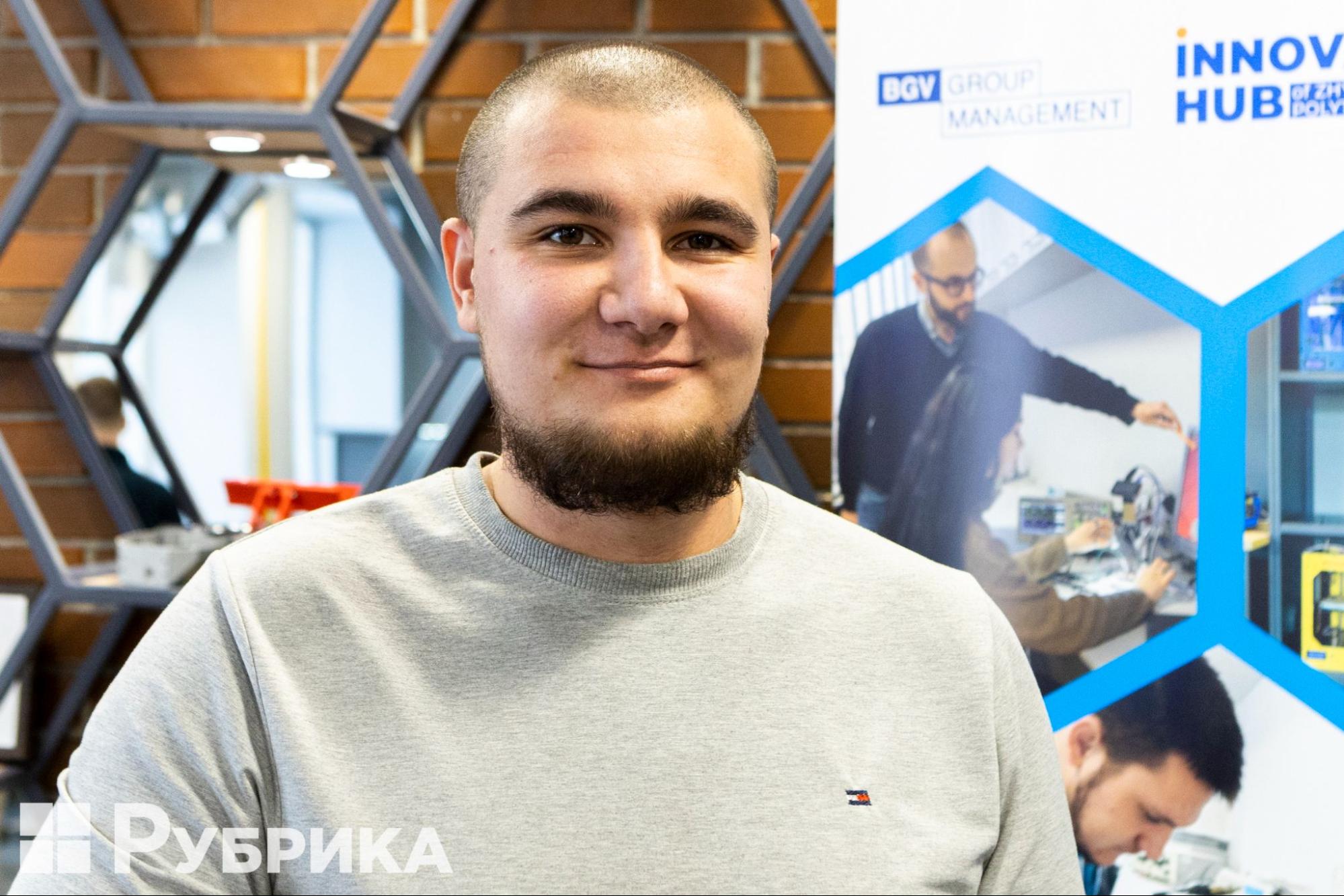
Yurii Koval.
After that, the team offers options for implementation, which can be both on the basis of the university and with the involvement of permanent partners, university graduates, or entrepreneurs.
"From a student studying to become a surveyor, a mining engineer, and developing careers, to a graduate in cyber security or management and law, or even a mechanic — they can come here and implement any of their projects," the student assures.
Koval himself is a graduate student in applied mechanics. In the laboratory, he deals with everything related to metalworking: turning, milling, tooth milling, and grinding. He says that at first, it was difficult because the structure of the university was not ready for the creation of a laboratory: "However, the administration is very loyal to us, so having secured their support, we received permission to create it and have been employees of the laboratory for four years."
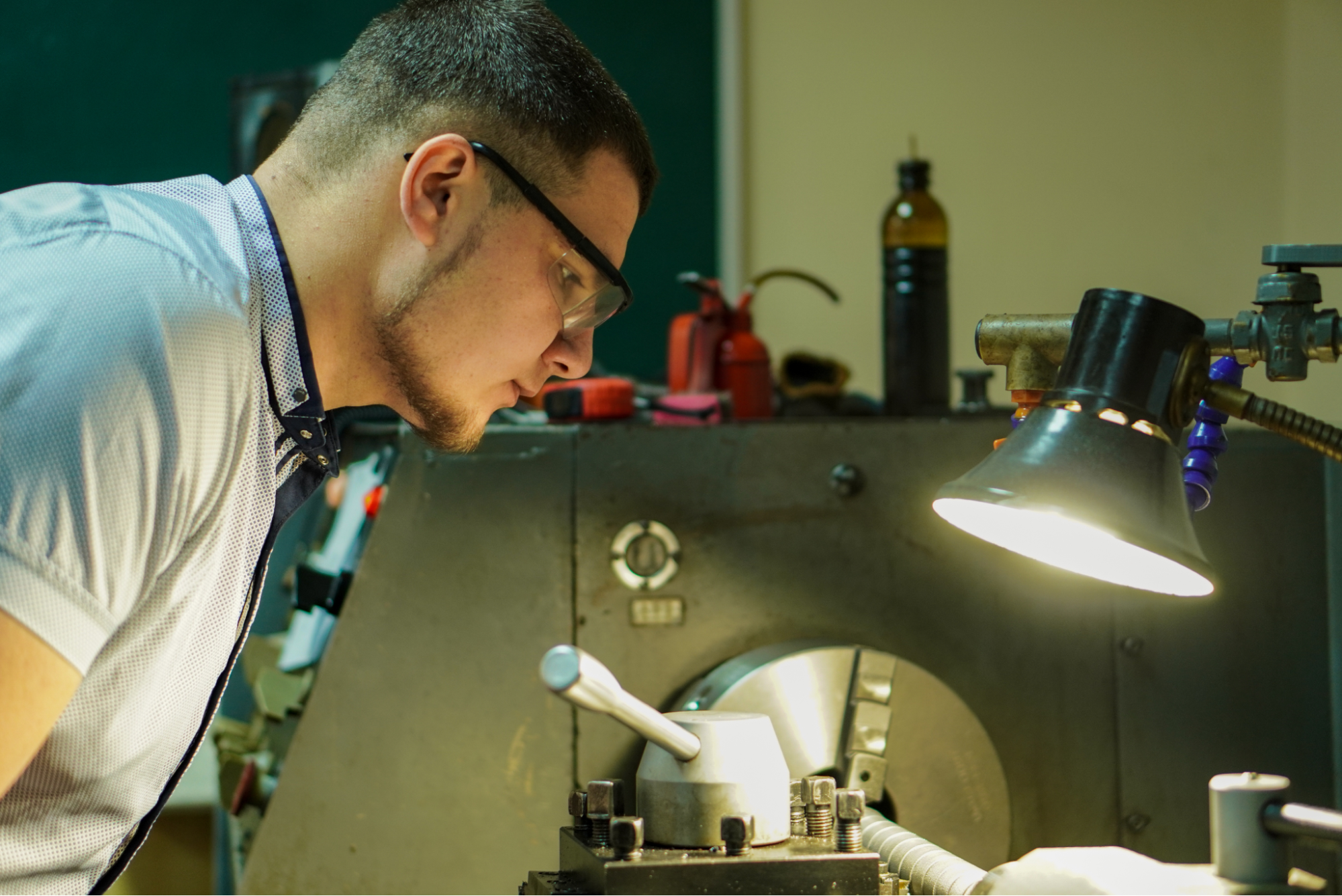
Yurii at work. Photo: University archives.
In four years, the scientists managed to do a lot: they gave new life to ten machines that had already outlived their usefulness. Now, they are back in service and working both for enterprises and for students' scientific works.
An example of a restored mechanism is a lathe from 1987, which proudly occupies a quarter of the room. At first, it seems that this is a museum exhibit – but it is in active use – the laboratory team gave it a new lease of life and postponed its retirement for a few more years.
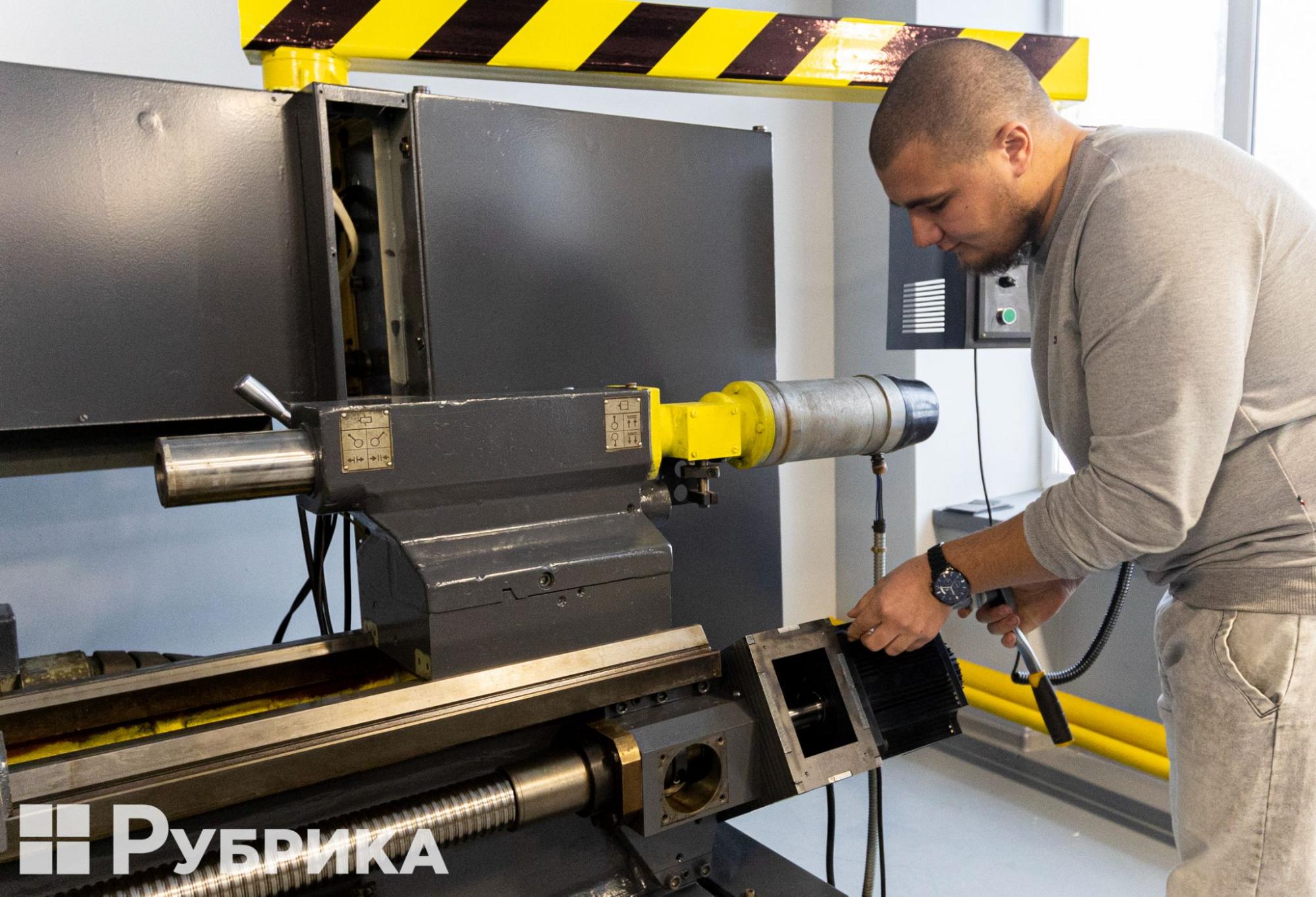
Science as a basis for the implementation of technologies
The university team understands that creating innovations is impossible without a scientific base. That is why the management is working on a new strategy for its development.
"The university is an educational institution where students are trained in certain specialties. We are putting a slightly different approach in the strategy, that precisely science will be the primary activity of the university," Viktor Yevdokymov, the university's rector, explains. "Science will strengthen the educational component, allowing us to unite business between Ukraine, the region and our international partners. Scientific research and the development of the scientific component at the university will be of primary importance."
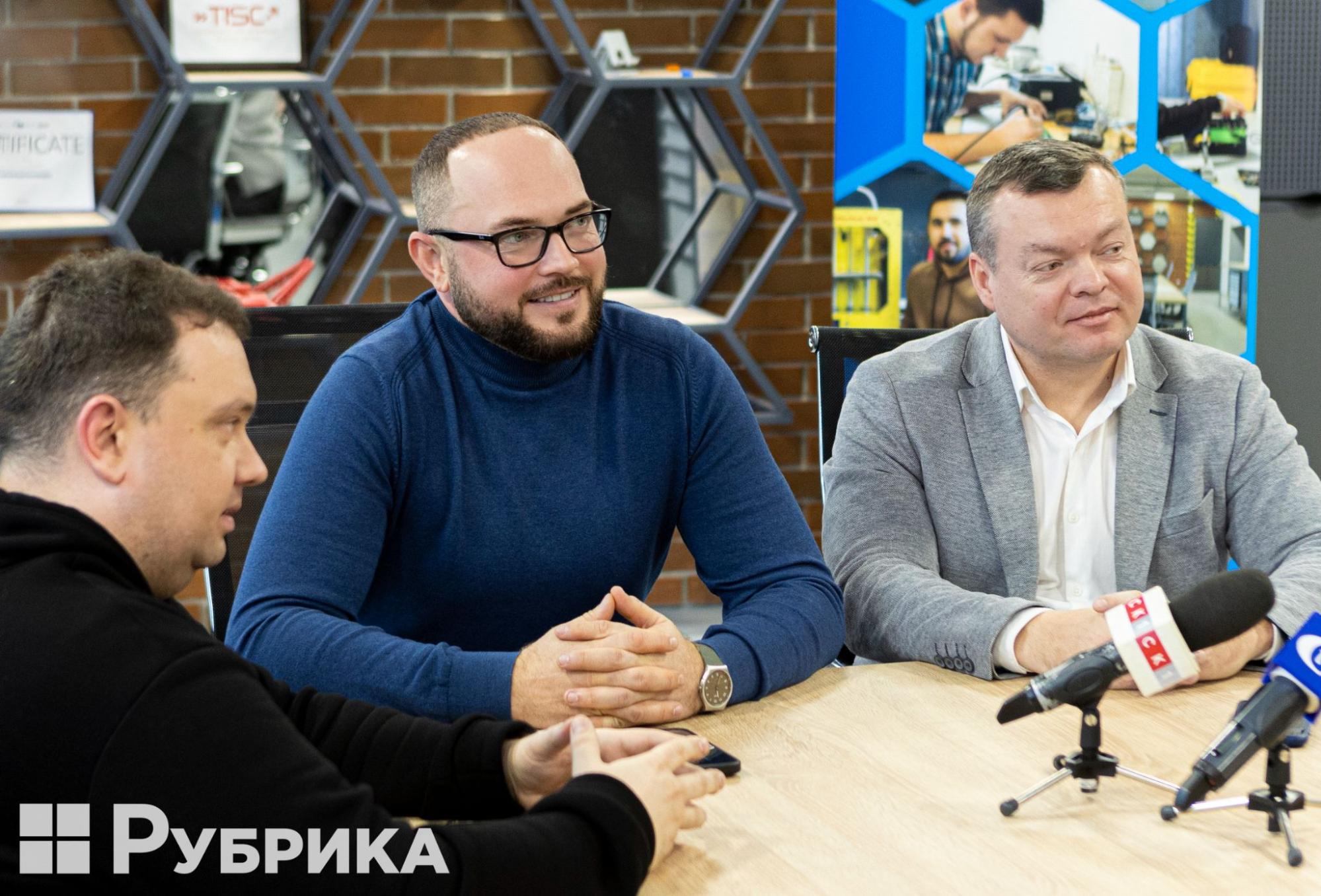
From left to right: Mykhailo Psyuk, Viktor Yevdokimov, Maksym Habriychuk.
There are also plans to abandon scholarship funding in favor of another financial support model, including through commercial scientific research and projects.
Yevdokimov adds that a common problem among Ukrainian universities is the lack of material and technical support. The university seeks to solve this problem and make modern laboratories so that "the student is not detached from real life in practice." In this, they are supported by cooperation with business and investment companies, one of which is BGV Group Management, which helps with the purchase of a modern material and technical base.
In addition, in partnership with BGV and several other associations, Zhytomyr Polytechnic is launching an Ukraine-wide strategic acceleration program to support technological hardware startups, BGV HARDWARE ACCELERATOR. The selection of participating engineers will take place in February. Anyone who wants to join the development of Ukrainian technological businesses and sees themself in the field of technology and entrepreneurship can apply.
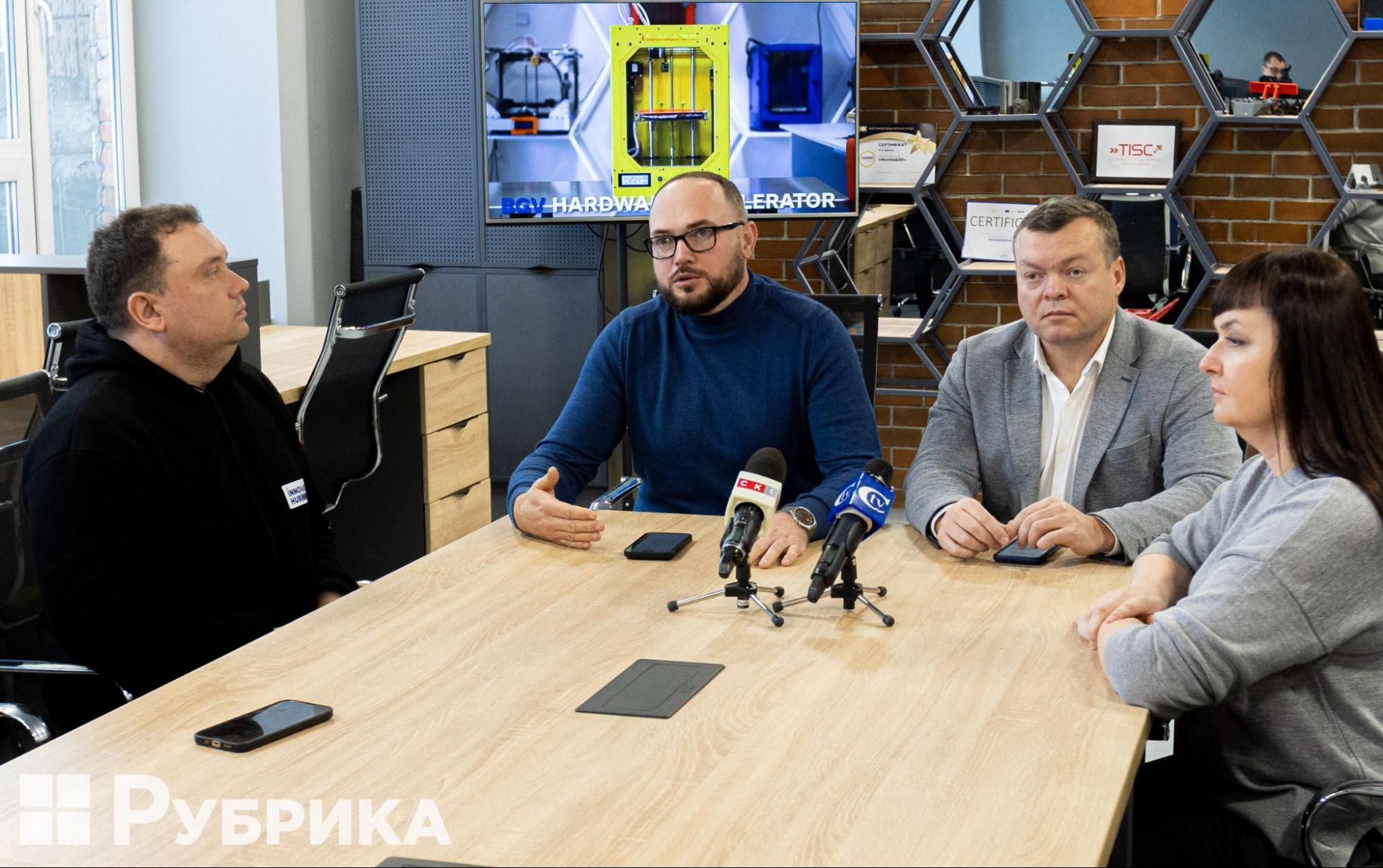
"We have to do everything so that the youth can stay in the region for today, get quality knowledge, be able to realize themselves in the future at various types of enterprises and companies, and be able to move within the limits of their career growth," says the rector.
Maksym Habriychuk, head of educational projects at BGV Group, says that supporting regional education is a priority because it will help the country transition from a resource economy model to an economic model of producing a final product with a significant added value.
"We help young scientists, authors of scientific and technical ideas in the accelerator to finance the creation of a prototype. We invest funds for the accelerator to purchase equipment elements, components, and materials from which a prototype or the first equipment sample is produced," the manager told Rubryka. "We offer expertise to help the idea owner understand where their product fits in the market, with whom and how it will compete. We also help build a balanced financial business model, basic business processes, and business structure so that it is stable and able to compete not only on Ukrainian markets but worldwide markets."
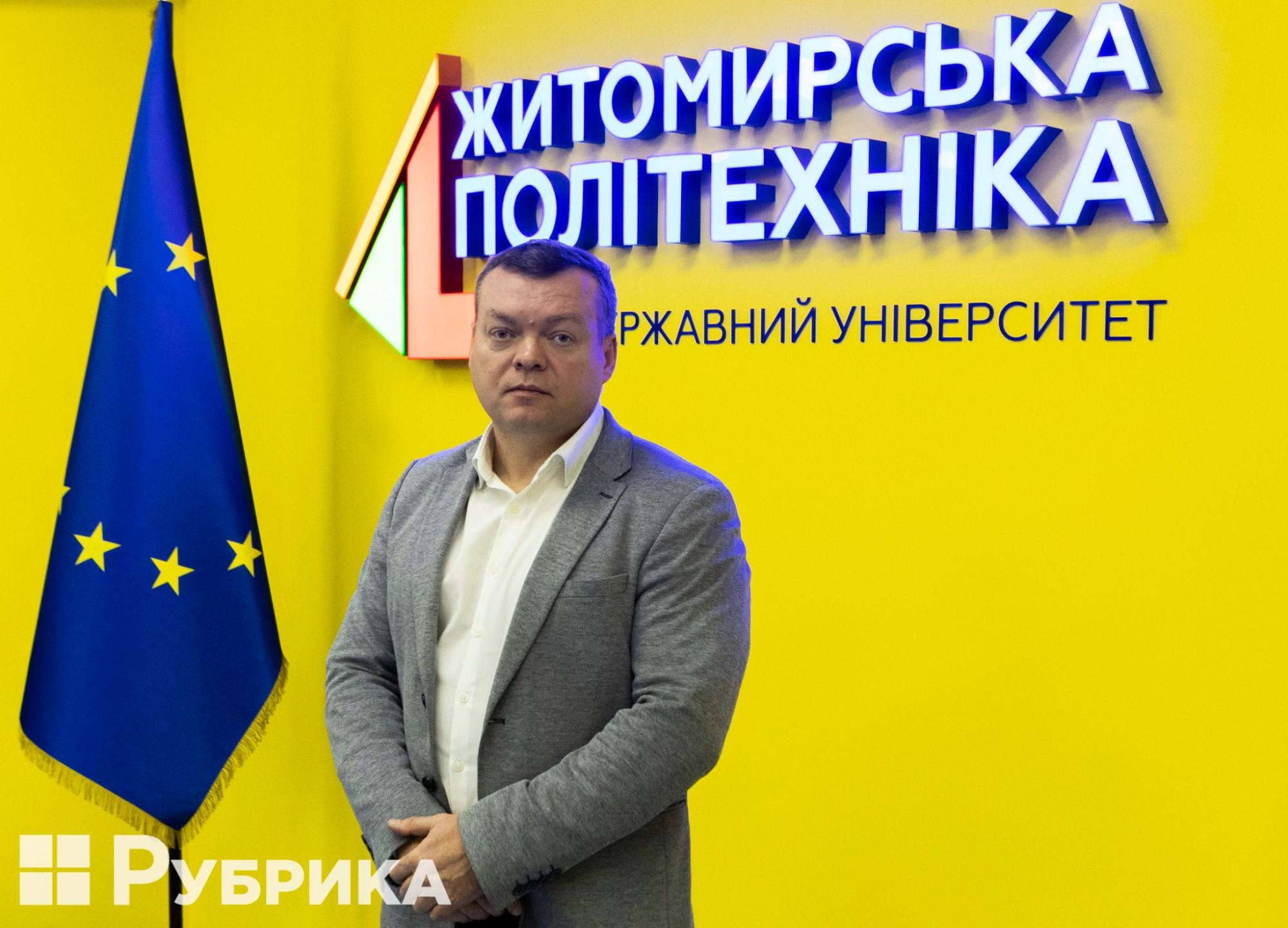
Maksym Habriychuk.
The most valuable resource is people
Without developing human capital every industry will suffer from a lack of specialists. The rector of the polytechnic emphasizes: "We, of course, pay a lot of attention at the university to modern equipment, material, and technical base, but I always say the most valuable resource of the Zhytomyr Polytechnic is our team, our human potential that for us is super-valuable."
Psyuk shares that the polytechnic has grown to 9,000 students in recent years. The main task of the university now is to create the conditions in which students would like to stay and create innovations.
"For students to want to stay in Ukraine, they need to create the right conditions, showing the prospect that they can have a successful, beautiful, interesting life here," Psyuk is convinced. "At the Zhytomyr Polytechnic, we make every effort to ensure that they can be realized here: laboratories, support programs, an acceleration program to support startups, the opportunity to open up, take your professional steps in business right while studying at the university. This is our strategy so that our young people stay in Ukraine."
Newsletter
Digest of the most interesting news: just about the main thing







